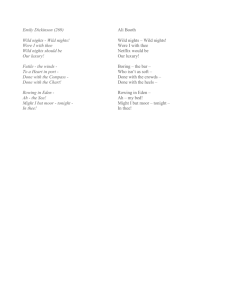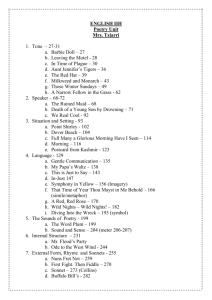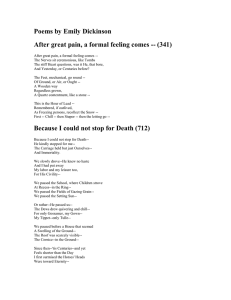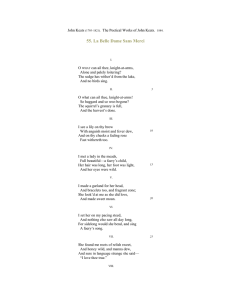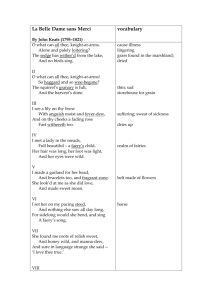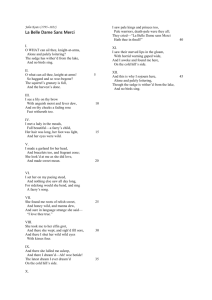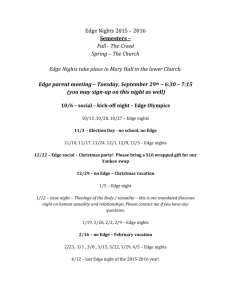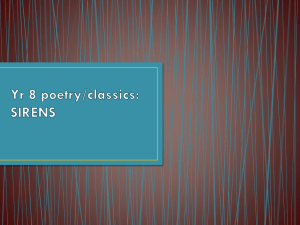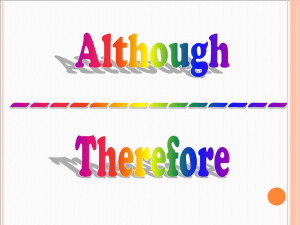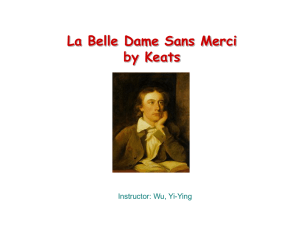SETTING
advertisement
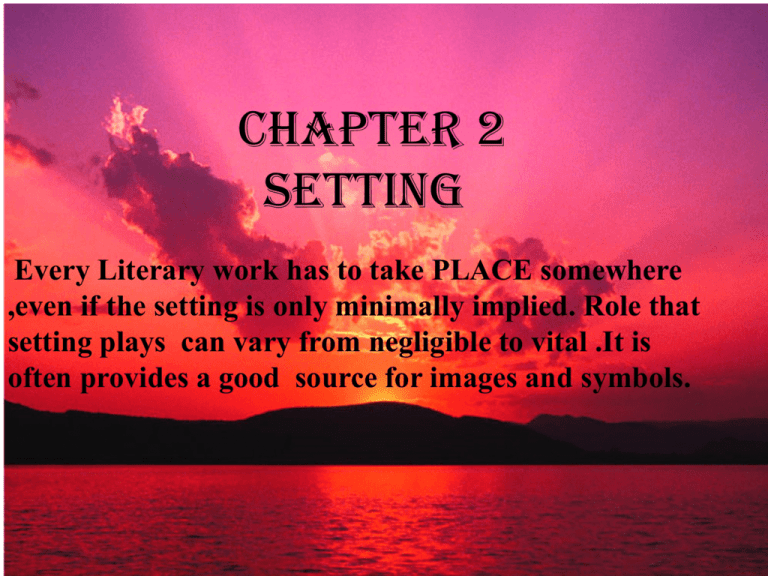
CHAPTER 2 SETTING Every Literary work has to take PLACE somewhere ,even if the setting is only minimally implied. Role that setting plays can vary from negligible to vital .It is often provides a good source for images and symbols. 1)Some settings are just merely landscape of author’s mind. -Most refer with an implied or an actual setting, but some is general comments on life or outbursts of emotion. Sometime, it is translated into metaphorical landscape terms, which may be reveries, memories , or dreams. While some vaguely suggest setting in the outside world. For example; Emily Dickinson’s outburst of emotion provide good examples. In “Wild Nights”. Wild Nights-Wild Nights! Were I with thee Wild Nights should be Our luxury! Futile-the-WindsTo a Heart in portDone with the compassDone with the chart! Rowing in EdenAh ,the sea! Might I but moor-TonightIn Thee! -many Hollywood or TV script been set in places never even visited by writer. For example; The Eiffel Tower in Paris, White House in Washington, Big Ben in London. -A high degree of accuracy was not necessary. Central focus of these works was action, adventure,romance,intrigue.For example; Casablanca is not most popular movie at all time, because of the accuracy which the place was depicted, but important because of the love story,conflict,etc. 3)Settings in historical fiction and drama depend on careful research. -Setting should involve a careful and accurate reconstruction of that period. Novel such as I, Claudius by Robert Graves requires a much more through background. -Books with pictures, of historical characters, but of the conflicts, architecture, geographical locations, are useful. -Others, on video tapes and CDs.
